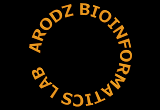|
ARODZ BIOINFORMATICS & MACHINE LEARNING LAB |
||||
labfocus
Development of new machine learning and bioinformatics methods. |
||||
recentresults
We proposed a new group testing approach tailored for scenarios where quantitative measurements are available (e.g. Ct values in PCR tests). It allows using much fewer tests than there are samples to be tested. We designed a technique for reducing the size of embedding matrices and self-attention weight matrices in deep Transformer-based language models using a much more compact, yet expressive representation based on Kronecker/tensor products. We formulated and analyzed two quantum machine learning algorithms: a semi-supervised SVM based on quantum HHL/LMR protocol, and a sparse SVM based on quantum LP solver. We used techniques from topology (embedding of homeomorphisms into flows) to analyze whether two popular recent architectures for creating invertible deep nets, neural ordinary differential equations and invertible ResNets, have the capability to model arbitrary invertible function. We combined MCMC, binary quadratic programming, and knowledge from biological networks to identify which of the somatic mutations present in cancer patients are contributing to the onset and progress of the disease, and which are just 'passenger mutations' with no impact. Within a large cMEDA team, we analyzed the effects of human microbiome composition on pregnancy outcomes. |



